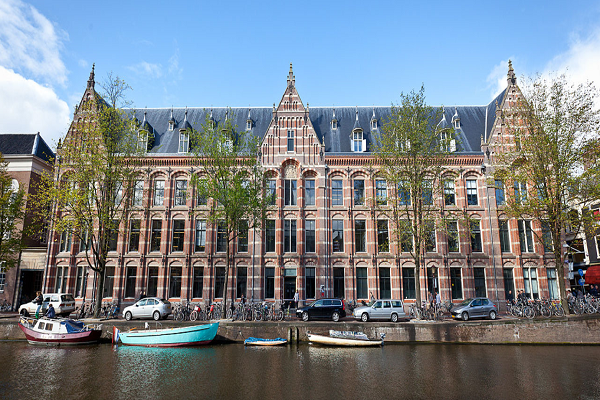University of Amsterdam: IIS elective about (in)equality in education
Equal opportunities in education is a topic that was clearly portrayed by the documentary ‘Klassen’ created by broadcasting company HUMAN, shown on Dutch television in late 2020 and early 2021. The praised series followed several eighth-graders just before their final advice for a high school in Amsterdam. The documentary revealed interpersonal differences and approaches. Sociologist Thijs Bol has been researching inequality for years and, in this second semester, he teaches the new IIS elective ‘Klassen’ – which translates to ‘Classes’ in English – about equal opportunities in education, which looks at this subject from different perspectives and deals with the causes. The central question is: what can be done to reduce inequality of opportunity? Thijs Bol talks about the set-up of the course and what he wants to teach the students.
Role of the documentary
Bol explains: “The ‘Klassen’ series plays a big role in the lectures. Each week, we discuss scenes from the series, what we see and how this relates to the theory behind inequality of opportunity. But also: why does this fragment resonate? I have been researching this theme for a long time, but the documentary suddenly brought it to a large audience. The footage illustrates what we find in research on opportunities. For example, the role of expectations, early selection or parents. In the lectures, we discuss all these factors and there is plenty of room for interaction. Guest speakers are also involved in the course, including the documentary makers of ‘Classes’ themselves, Sarah Sylbing and Ester Gould. The students were able to interview the makers in a College Tour-like setting.”
Interdisciplinary approach
“An interdisciplinary approach is essential. So many factors play a role in equal opportunities, beyond education as well. What happens at home? Where and how do people live? Housing policy is therefore important, but judicial factors also play a role: what can and cannot be dealt with within legislation? Inequality is very complex and an integral approach is very important. There are many different study backgrounds among the students, which has a clear added value. There are trainee teachers, for example, who look at problems in a completely different way than students who have a background in Classic Languages. Those different perspectives are enormously enriching, sparking discussions and help to think about solutions in a variety of ways.”
Awareness of position
“In addition to knowledge, I hope to bring the students, in particular, a better understanding of the factor ‘luck’ that some children have and others do not. You do not decide where your cradle stands or what position your parents hold, but this plays a huge role in the rest of your life. I hope that by raising awareness, we learn to look differently in our society at people who are successful or less successful. Not everything can be influenced and you cannot attribute ‘success’ entirely to individual responsibility. I hope that my students understand the complexity of this and pass it on, in their own way, later in their careers. Particularly because of the interdisciplinary composition of the students, they will end up in many different places. They will be doing all kinds of things and I hope that the experience they gain from this course will have an impact. Creating awareness about your own position is important here. One student had to fight very hard to get into university, while another took it for granted. In the notes that students write for the course, they link the scientific literature to the documentary ‘Klassen’, but there is also a lot of room for reflection on their own position.”
Stigmas, privileges and physical classrooms
“During the course, the students work on a project that can have different goals: (1) or they research something, learn to understand it better, (2) or they teach others and try to create awareness, (3) or they are going to change something. The last one is of course the most difficult, but also a nice challenge. The topics of the groups are very diverse; one group investigates the stigma that lies on the VMBO and what this means for the students who are studying here. Another group is making a game about images that we consider ‘normal’ and is taking a closer look at privileges. There is also a group that is creating a photo series about the design of physical classrooms.”
Multi-headed monster
“Inequality of opportunity is a multi-headed monster and that makes it very difficult to tackle. I don’t evaluate whether a project went well or not, as long as the intention was sensible. Projects can fail, students learn from this: many interventions against inequality of opportunity fail. Students write an accompanying report about the process, how it could be improved, which literature they consulted, etc. Gaining insight into the complexity and dynamics of inequality of opportunity is in the end the ultimate lesson I want to pass on to them.”

